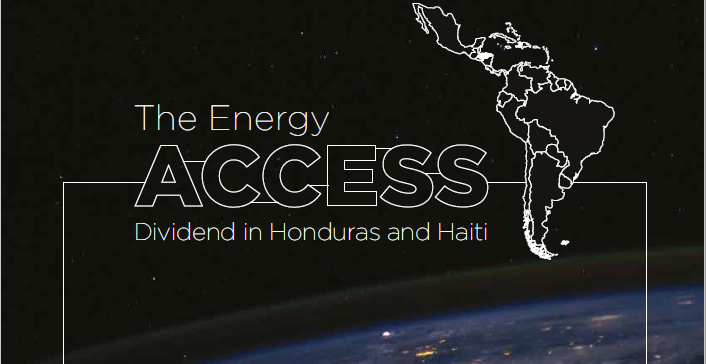The Energy Access Dividend

The Energy Access Project at Duke in collaboration with the Inter-American Development Bank and Sustainable Energy For All, have developed an Energy Access Dividend for Haiti and Honduras with the aim of quantifying the electrification benefits forgone over a country’s business-as-usual electrification transition.
Governments face important decisions regarding how to balance power quality, quantity, and reliability priorities with how to ensure all populations receive access as quickly as possible. Identifying the pathway that best fits the needs of the country requires a detailed understanding of the benefits that accrue to different populations under different scenarios and timelines. The Energy Access Dividend in Honduras and Haiti develops a methodology to quantify and monetize benefits generated through accelerated electricity access.
Electricity access saves households money on lighting and cell phone charging costs. It facilitates ownership of radios, fans, televisions, and refrigerators and allows for increased household productivity. It allows for increased study time in the evening and reduced emissions of harmful pollutants. The report builds on Power for All and SEforALL’s existing framework for measuring the dividends of electrification, which was developed to estimate the potential benefits of increasing the pace of electrification through a series of three case studies examining energy access in Kenya, Ethiopia, and Bangladesh (Why Wait? Seizing the Energy Access Dividend, 2017).
Collaborators: Emily Pakhtigian, Eric Burton, Marc Jeuland, Subhrendu Pattanayak, Jonathan Phillips, Christine Eibs Singer, Hadley Taylor, Michelle Hallack, Javier Cuervo, Carlos Jacome, Natasha C. Marzolf
Partners: Inter-American Development Bank, Sustainable Energy For All
